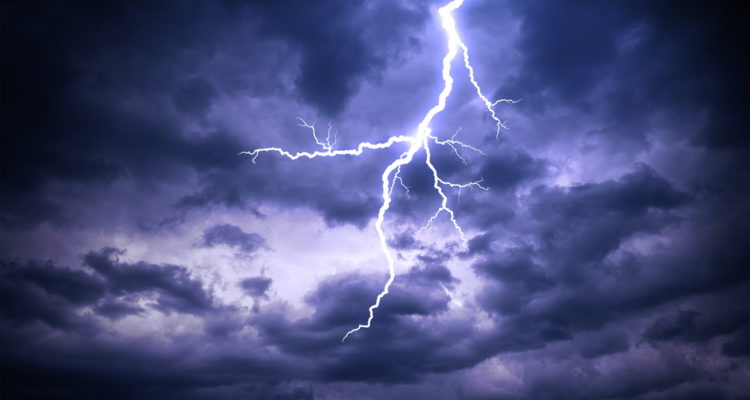
Israeli researchers develop new artificial intelligence-based system they claim is more than 90% accurate in predicting where lightning will strike and spark wildfires.
By World Israel News Staff
A new artificial intelligence (AI) model developed by Israeli researchers aims to revolutionize wildfire prediction, with a particular focus on lightning-induced blazes that are growing increasingly common due to climate change.
The new AI model, according to the researchers, can predict where and when lightning strikes are most likely to cause wildfires, achieving over 90% accuracy — a first in wildfire forecasting.
Dr. Oren Glickman and Dr. Assaf Shmuel from the Department of Computer Science at Bar-Ilan University, in collaboration with experts from Ariel and Tel Aviv Universities, utilized seven years of high-resolution global satellite data, alongside detailed environmental factors like vegetation, weather patterns, and topography, to map and predict lightning-induced wildfire risks on a global scale.
Their research was recently published in Scientific Reports.
The Bar-Ilan team says that their new AI model outperforms traditional fire danger indices by taking a global, data-driven approach, integrating data from satellites, weather systems, and environmental factors to assess the likelihood of lightning-induced fires, overcoming the limitations of regional and data-restricted models.
The model was tested using wildfire data from 2021 and, according to the research team, showed an accuracy rate of over 90%, a level of precision that could potentially transform emergency response and disaster management worldwide.
With an improved ability to predict lightning fires, meteorological services, fire departments, and emergency planners can respond earlier, smarter, and more effectively—potentially saving lives and protecting ecosystems.
The new AI-based system could also address a key gap in existing wildfire prediction models: while many models are effective for fires caused by human activity, they struggle to predict lightning-induced fires, which behave very differently and often start in hard-to-reach areas.
“With the growing implications of climate change, new modeling tools are required to better understand and predict its impacts. Machine learning holds significant potential to enhance these efforts,” said Dr. Shmuel.
“We are at a critical moment in understanding the complexities of wildfire ignitions,” said Glickman. “Machine learning offers the potential to revolutionize how we predict and respond to lightning-ignited wildfires, providing insights that could save lives and preserve ecosystems.”
https://worldisraelnews.com/new-israeli-system-can-predict-lightning-strikes-and-fight-wildfires/?vwo_powered=1
